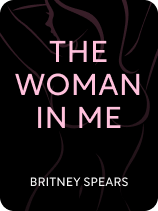

This article is an excerpt from the Shortform book guide to "The Woman in Me" by Britney Spears. Shortform has the world's best summaries and analyses of books you should be reading.
Like this article? Sign up for a free trial here.
What was Britney Spears’s conservatorship dispute? Why was the pop star placed under a conservatorship?
Britney Spears’s conservatorship was an ongoing battle for the musician for 13 years. She was placed under it involuntarily by her father, who controlled every piece of Spears’s life during those years.
Discover how Spears was treated during the conservatorship.
Stolen Years Under Conservatorship
How did the Britney Spears conservatorship dispute come about? Spears’s father took advantage of her erratic behavior and her frayed emotional state in 2008 to assume complete control of her life in the form of a legal conservatorship. Spears goes into the steps that were used to entrap her, the restrictive conditions she lived under for years, and the lengths her father went to assert his dominance over his daughter.
In 2008, during one of the times when Spears was allowed to be with her sons, she became so afraid she wouldn’t see them again that she locked herself in the bathroom with her youngest child. Spears writes that in response, a team of policemen broke down her door, restrained her, and sent her to a hospital for observation. Her parents showed no concern at the time.
(Shortform note: Spears’s fears about losing her children may be more understandable given the timeline of her custody battle, which Spears doesn’t elaborate on in her book. Previously, in March 2007, Spears and Federline had reached an agreement to share custody of their children, but the fight didn’t end. Federline’s lawyers continued to subpoena Spears’s associates to speak about her parenting, and in October 2007, the courts restricted Spears’s access to her children to only allow monitored visitation. Later that same month, a judge suspended her visitation rights entirely, citing an unspecified court order violation.)
Spears admits that she would vent her anger and cover up her sadness by acting out, partying, and taking Adderall, but her parents didn’t take an interest in her problems until she started dating someone they didn’t like. It was then that they swooped in and took away her freedom.
(Shortform note: Adderall is a prescription amphetamine used to treat attention deficit hyperactivity disorder, though Spears never says if she was diagnosed with ADHD. Adderall boosts mental and physical energy, but like any drug, it can have harmful side effects such as insomnia, headaches, and increased anxiety, especially if taken in conjunction with alcohol. While Spears states that her problem was depression, not addiction, the two have many overlapping symptoms, which can lead to misdiagnosis.)
Spears recalls that her mother asked her to come home, warning her that the police were after her. Spears couldn’t imagine what she might have done to warrant a police investigation, but when she arrived at her home, a group of policemen took her into custody like a violent criminal and carted her to another hospital for observation. Spears believes this event was orchestrated by her father and an entertainment management firm to which he was in debt.
(Shortform note: The situation in which Spears describes being placed under observation is an involuntary psychiatric hold, known in California as a 5150 hold. Someone can be placed on a psychiatric hold if the police or a mental health provider determines that a person poses a danger to themselves or others, or if they’re unable to care for themselves. However, in California, involuntary holds don’t apply in cases of substance abuse or unpleasant behavior; the person’s impairment must be due to mental illness for the hold to meet its legal criteria. Spears doesn’t say what specific diagnosis was used to justify her psychiatric hold.)
The Conservatorship Begins
On February 1, 2008, the California court placed Spears in a conservatorship on the grounds that she was incompetent to make her own decisions. Spears’s father—an alcoholic who was teetering on bankruptcy—was granted control of Spears’s personal life and her entire financial estate. Spears was forced to accept a court-appointed attorney and was given no chance to defend herself. During this, her mother stayed silent and complicit; after all, the whole family depended on Spears for their income. Spears’s father made it clear, in no uncertain terms, that she would do whatever he said without question.
Spears’s father and his management team went about isolating Spears from any personal relationships she might develop. If she went to see friends, a security detail went with her to monitor everything she did. If she wanted to date someone, her manager would divulge to the person all the details of Spears’s private life. Spears argues that this entire arrangement was purposely designed to cut off her support and make her dependent on her father, but she felt so defeated at this point that she went along with every stipulation. As a reward, she was allowed to see her children so long as she kept to her father’s rules.
| Charges Against Conservatorship Spears’s revelations about her conservatorship highlight a problem that disability advocates have been calling attention to for years. In 2018, the National Council on Disability reported that over 1 million people in the US are living under guardianships that restrict their autonomy and their civil liberties. People living in such conditions are often given ableist messages that self-care is impossible, are repeatedly told that losing their rights is “for their own good,” and are rarely presented with alternatives to conservatorship, such as supportive decision-making networks. Another high-profile case of a person in the national spotlight ending their conservatorship is that of football star Michael Oher, the subject of Michael Lewis’s book The Blind Side and the 2009 film of the same name. Oher charged that the Tuohy family did not adopt him, as stated in the book, but instead made him sign a conservatorship agreement that gave them the sole right to negotiate contracts on his behalf, and that they abused that right for their own financial gain. In September 2023, the courts ended Oher’s conservatorship while allowing his lawsuit against the Tuohy family for financial mismanagement to proceed. |
Performing on Demand
One of the things Spears’s father required was that she go on tour and make appearances on TV. Spears draws attention to the contradiction of claiming that someone’s too sick to make decisions but is healthy enough to learn dance routines, endure an exhausting tour schedule, and present herself well in front of the camera. On tour, she pretended to be an adult on stage, but once her shows were over, she was treated like a heavily chaperoned child. Spears wasn’t even allowed to decide what she ate. When one of her hairdressers commented on Spears’s insane schedule, they were fired the next day. No one was allowed to question Spears’s father.
When a deal came along in 2013 for Spears to do a multi-year residency in Las Vegas, her fans were welcoming, and her show attracted a younger audience than Vegas usually receives. However, Spears’s enjoyment wouldn’t last. She writes that her boyfriend at the time gave her over-the-counter energy pills that greatly improved her performance on stage, but her father, who had control of her body, sent her into rehab, even though the supplements were legal and available to anyone. In a 2014 bid to break free from her father, she pleaded with the court to test him for drug and alcohol use, but her request was summarily denied.
Spears’s Las Vegas concert series sold nearly a million tickets during its run, enriching her father, her management company, and anyone else connected to the “Britney Spears industry.” Spears states that while others were profiting from her work, she was only given an allowance of $2,000 per week, which she could only spend with her father’s permission. As the end of the Vegas residency approached, she pleaded for time off to spend with her children, but instead, her father and managers ordered that she start touring again right away. Her father promised that if she refused, he would humiliate her in court for breaching the terms of her conservancy.

———End of Preview———
Like what you just read? Read the rest of the world's best book summary and analysis of Britney Spears's "The Woman in Me" at Shortform.
Here's what you'll find in our full The Woman in Me summary:
- The key takeaways of Britney Spears' memoir about her career and private life
- How the media's portrayal of Spears differed from her experiences
- How the music industry treats women differently than men






